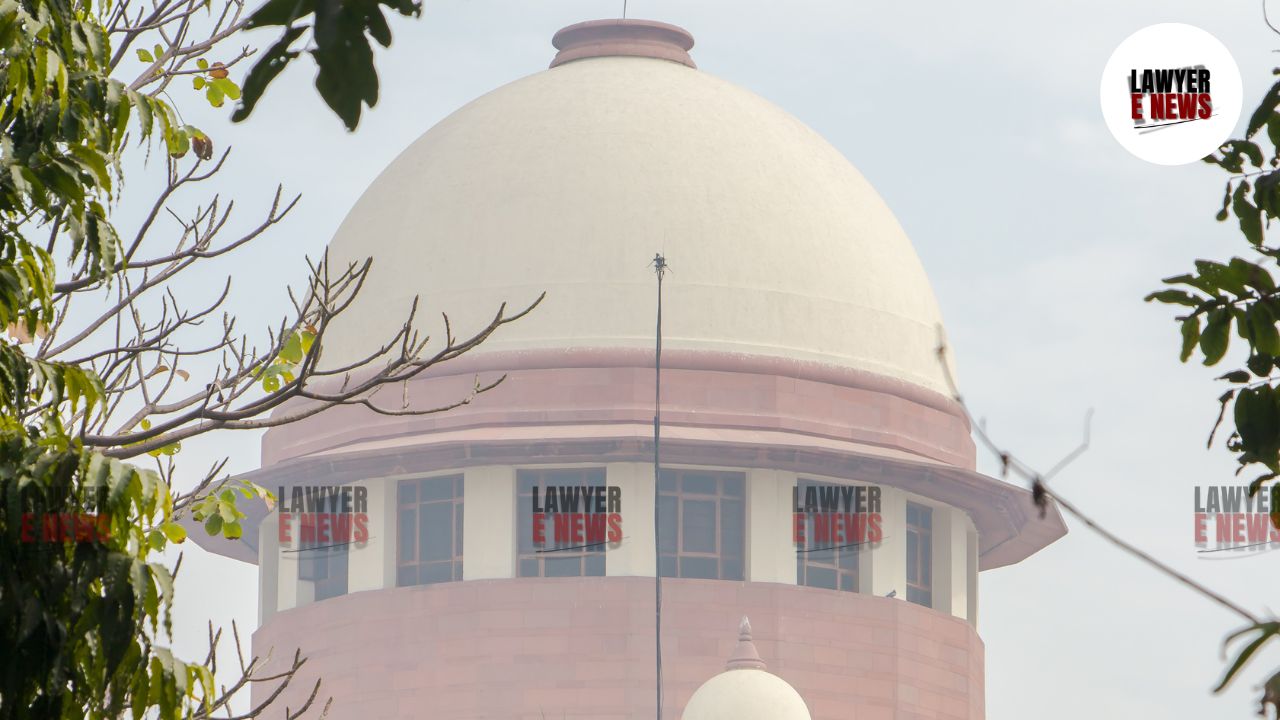-
by Admin
15 February 2026 5:35 AM



On September 18, 2024, the Supreme Court of India, in Saheb, s/o Maroti Bhumre & Another v. The State of Maharashtra overturned the conviction of two appellants, Saheb and Sitaram, in a 2006 murder case. The appellants were acquitted after spending over 10 years in prison. The court found that the sole testimony of the key witness, the widow of the deceased, was riddled with inconsistencies and failed to establish guilt beyond reasonable doubt. The acquittal emphasized the importance of reliable and corroborative evidence, particularly when eyewitness testimony is the sole basis of conviction.
The case stemmed from the murder of Madhavrao Krishnaji Gabare on April 8, 2006, in Basmathnagar, Maharashtra. According to the prosecution, the incident was politically motivated, and the deceased's widow, Janakibai Gabare, was the sole surviving witness. She alleged that the appellants, along with others, attacked her husband and family with axes and sticks during a power outage. The trial court convicted nine accused under Sections 302, 148, and 324 of the Indian Penal Code (IPC), but the Bombay High Court acquitted all but three—Accused Nos. 2, 3 (Saheb), and 5 (Sitaram).
The core legal issue revolved around the reliability of the sole eyewitness (PW-1) testimony and the identification of the assailants during the alleged attack. The Supreme Court scrutinized the inconsistencies in her testimony and the challenging conditions under which the identification was made—namely, a power cut at the time of the attack.
The widow's statements made in her initial complaint and deposition in court showed significant discrepancies. She altered details about how the assault unfolded, the sequence of events, and the identification of the attackers. For example, in her deposition, she added that one of the accused threw a baby to the ground—an allegation absent in her original complaint. The Court noted that this inconsistency undermined her credibility.
The prosecution argued that the widow identified the assailants under moonlight, despite a power outage. However, no evidence was presented to corroborate the moonlight's adequacy for identifying the attackers. The Court found it implausible that, in the melee and darkness, the widow could have clearly identified the accused with certainty. Her claim that the attack lasted two hours further strained credulity.
The Court also questioned the reliability of circumstantial evidence, such as weapon attribution. The widow was inconsistent in describing who wielded which weapon, further raising doubt about the accuracy of her testimony. The court emphasized that without sufficient corroboration, convicting the appellants based solely on such unsteady evidence would violate the principle of "beyond reasonable doubt."
The Supreme Court observed that the prosecution’s case relied entirely on the testimony of PW-1, as other alleged eyewitnesses (PW-4, PW-5, PW-8) were disbelieved by the High Court. The failure of the prosecution to present the daughter-in-law, a key witness, compounded the evidentiary gaps. Citing the lack of clarity in the identification of the attackers and the contradictions in PW-1’s testimony, the Court acquitted the appellants.
The bench referred to the principle in Narain vs. State of M.P., emphasizing that when a witness’s testimony is fraught with discrepancies, especially in serious criminal cases like murder, the benefit of doubt must be extended to the accused. As the judgment noted, "the guilt of the appellants hinges solely upon the testimony of the widow... placed wholly in the realm of uncertainty."
In light of these findings, the Court allowed the appeals, set aside the conviction under Sections 148 and 302 read with Section 149 IPC, and ordered the release of the appellants. Bail bonds were discharged, and any fines paid were directed to be refunded.
The Supreme Court's judgment underscores the significance of reliable evidence in criminal convictions. In cases where the prosecution’s case rests on the sole testimony of a witness, courts must exercise extreme caution, especially when there are substantial contradictions and lack of corroborative evidence. The acquittal of the appellants after more than a decade in prison highlights the enduring principle that "it is better that ten guilty persons escape than that one innocent suffer."
Date of Decision: September 18, 2024
Saheb, Bhumre & Another v. The State of Maharashtra
